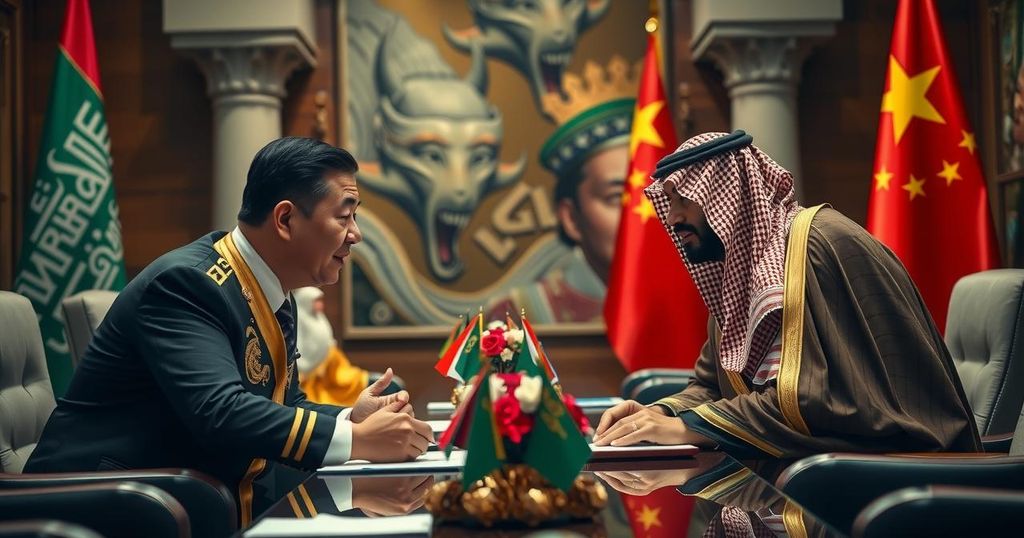In a recent meeting in Riyadh, senior diplomats from China, Saudi Arabia, and Iran emphasized their support for enhancing ties while calling for an end to Israeli military actions in Gaza and Lebanon. They condemned Israel’s violations of Iranian sovereignty and reaffirmed their commitment to the Beijing Agreement aimed at strengthening neighborly relations.
During a significant diplomatic engagement on Tuesday in Riyadh, senior diplomats from China, Saudi Arabia, and Iran reiterated their commitment to enhancing bilateral ties across various sectors. They jointly expressed urgent calls for an immediate cessation of Israel’s military actions in Gaza and Lebanon, while denouncing the Israeli strikes against Iran, which they claimed violated its sovereignty. This meeting underscores the increasing geopolitical dynamics as China seeks to establish itself as a mediator in Middle Eastern affairs. Moreover, both Saudi Arabia and Iran reaffirmed their dedication to implementing the recently forged Beijing Agreement, highlighting their aim to strengthen harmonious relations.
The geopolitical landscape in the Middle East has long been characterized by fraught relations, particularly between Saudi Arabia and Iran. Recent tensions have escalated due to ongoing military actions by Israel in the region, prompting a collective response from these nations. China’s involvement signifies its aspiration to assume a more prominent role in global diplomacy, actively mediating conflicts and positioning itself as an alternative to American influence in the Middle East. The Beijing Agreement, a milestone in Saudi-Iran relations, aims to foster peace and cooperation among these historically adversarial nations.
The diplomatic talks in Riyadh reflect a significant moment of collaboration among China, Saudi Arabia, and Iran, aiming to stabilize relations and address regional security threats. Their unified stance on halting Israeli military operations signifies a shared commitment to regional sovereignty and peace. As China continues to mediate these discussions, its role as a peace broker in the Middle East is poised for further development and scrutiny amid ongoing geopolitical shifts.
Original Source: www.scmp.com






